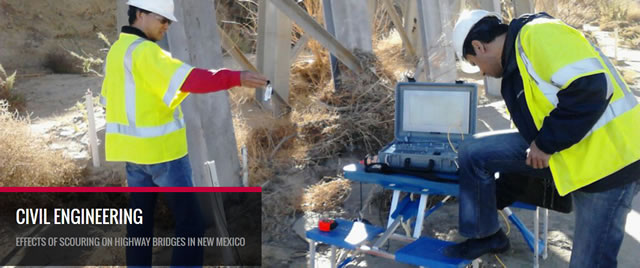
Civil Engineering ETDs
Publication Date
Summer 6-24-2019
Abstract
Accurate tracking of open-water evaporative losses, one of the largest consumptive uses of water in the Southwestern USA, is increasingly important with anticipated climate shifts toward longer and more severe droughts. A new open-water evaporation technique, the Collison Floating Evaporation Pan, (CFEP), was tested on Cochiti Lake, New Mexico, USA for one year with objectives being: identify the limitations and potential solutions to evaporation techniques; deploy, test the reliability, and validity of the CFEP and evaluate uncertainties in standard evaporation techniques; and improvements over prior evaporation techniques. The CFEP provided reliable evaporation measurements during sustained winds greater than 20 m/s. The accuracy of the CFEP was validated with an averaged percent difference of 1.72 of actual. The CFEP provided more accurate evaporation measurements than the five methods it was compared to with the Class A Pan underestimating evaporation by 910 acre-feet from May 13 through November 30, 2018.
Keywords
Evaporation, water management, water resources, open-water evaporation, Class A Pan
Sponsors
U.S. Bureau of Reclamation
Document Type
Dissertation
Language
English
Degree Name
Civil Engineering
Level of Degree
Doctoral
Department Name
Civil Engineering
First Committee Member (Chair)
Mark Stone
Second Committee Member
Julie Coonrod
Third Committee Member
Jan Boll
Fourth Committee Member
Ricardo Gonzalez-Pinzon
Recommended Citation
Collison, Jacob William. "The Collison Floating Evaporation Pan: Design, Validation, and Comparison." (2019). https://digitalrepository.unm.edu/ce_etds/233


